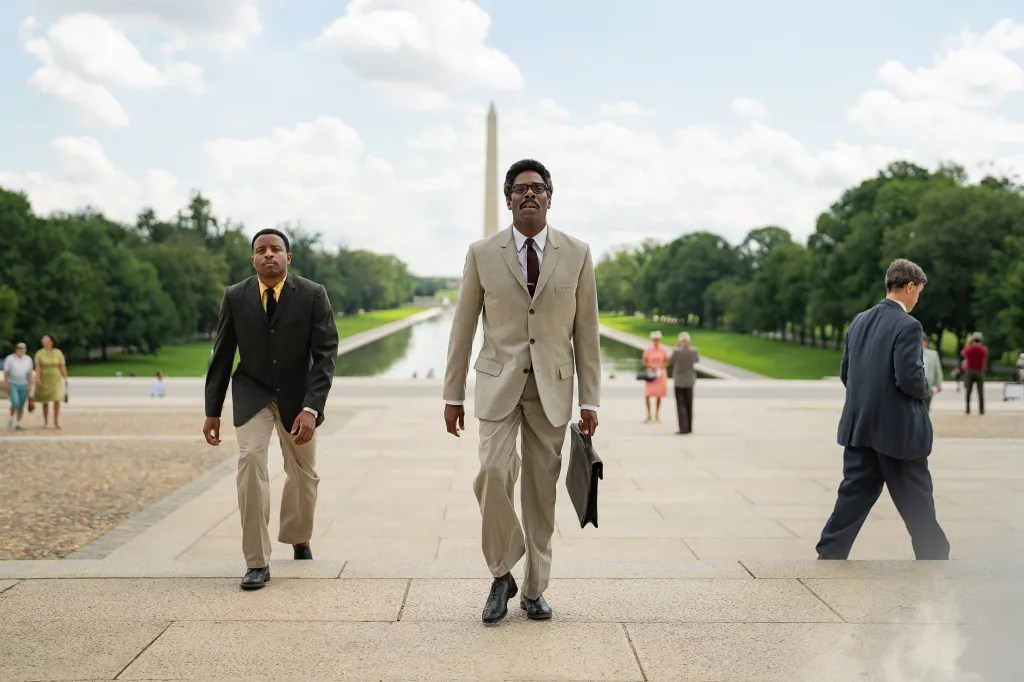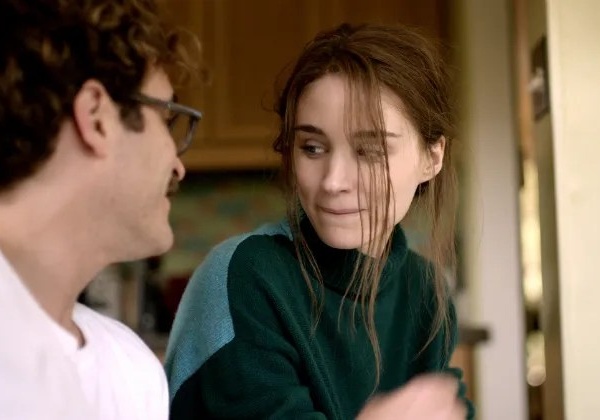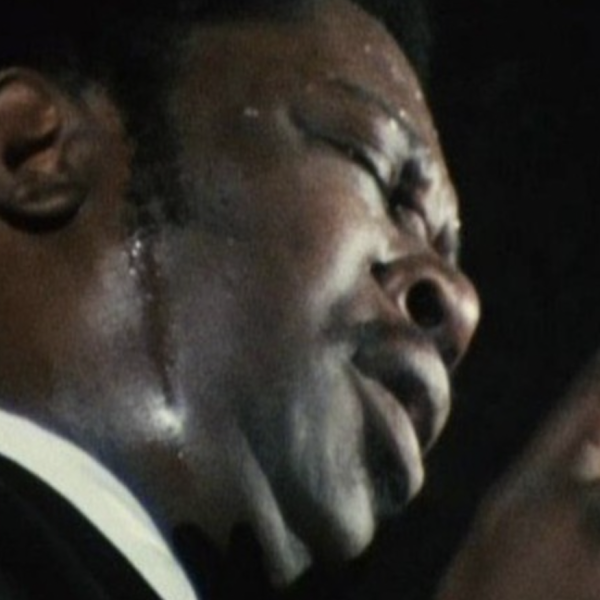Editor’s note: This review was originally published at the 2023 Telluride Film Festival. Netflix releases the film in select theaters on Friday, November 3 with a streaming release to follow on Friday, November 17.
For the most part, George C. Wolfe’s “Rustin” is every bit as broad and garish as you might expect from an awards-baiting Netflix biopic. The fact that this movie about a grievously unsung hero of America’s civil rights movement comes from Barack and Michelle Obama’s Higher Ground Productions may only add to the impression of a movie that thinks of itself as a means to an end (even if Higher Ground has maintained a rather impeccable track record thus far). But it’s also hard to get too bent out of shape about it when those ends include “winning Colman Domingo an Oscar, shining a light on the semi-forgotten gay Black man who organized the March on Washington, and telling that fascist potato fuck Ron DeSantis to choke to death on the racist school curriculums that threaten to erase Bayard Rustin’s accomplishments from the history books altogether.”
Be that as it may, you can’t begrudge a film critic for getting their hackles up at the sight of a star-studded prestige picture that so frequently adopts an agendafirst, art where there’s room for it approach to America’s past — not when the movies have proven time and again that great art galvanizes the collective unconscious more effectively than middlebrow agitprop ever could. We can appreciate the righteous good of putting something like “Rustin” into the world at the same time as we lament how sorely the film lacks its namesake’s inspirational flair for defying convention.
What saves “Rustin” from your — or at least my — most cynical expectations of it is that it strives to capture his essence in other ways. Clumsy as it can be, Dustin Lance Black and Justin Breece’s mile-a-minute script reflects the upbeat (and sometimes very sassy) enthusiasm of Rustin’s electric mind, while Branford Marsalis’ jazz score maintains the buoyancy of a man who refused to be kept down, and Tobias Schliessler’s drab-as-hell digital cinematography, um… never lets you lose sight of the ugliness that Rustin is hoping to remove from American life.
In the deliberate hands of a veteran Broadway director like Wolfe, these various attributes occasionally conspire to create something that doesn’t feel like a biopic at all so much as a toe-tapping movie about putting on a show — in this case, that show just happens to be one of the largest and most impactful political rallies in human history.
As a biopic, “Rustin” can be a staid and flimsy showcase for a great actor to flex his muscles in the kind of lead role that he’s been denied for too long. Supported by a cast that includes Chris Rock as the obstinate NAACP director Roy Wilkins, Audra McDonald as activist Ella Baker, Aml Ameen as a conflicted Martin Luther King, Jr. (who, in an on-screen rarity, finds himself on the losing side of a critical argument), and Jeffrey Wright as unhelpful Baptist pastor Adam Clayton Powell Jr., Domingo is unsurprisingly wonderful as a man who fights to lift people up no matter how often he gets beaten down in return.
Domingo’s Rustin is an excitable Quaker gadfly inspired by Gandhi. He lives out loud, owns his differences in a world where any one of them could get him killed, and so convincingly preaches the gospel of non-violence that you believe he could unite and mobilize the entire Black community in a span of just seven weeks, even if the reality is that he and labor unionist A. Philip Randolph (Glynn Turman) began planning the March on Washington two years earlier.
As a biopic, “Rustin” is diminished by the forced momentum of its plotting, by how inelegantly the script incorporates the social dynamics of Rustin’s homosexuality (the love triangle that develops between Rustin, fellow activist Tom Kahn, and a composite character played by Johnny Ramey stops the movie dead in its tracks every time it comes up), and by the confounding decision to yadda yadda yadda the actual March on Washington after building up to it for so long. If “Bohemian Rhapsody” could spare 20 minutes to watch Rami Malek lip-sync through Queen’s entire Live Aid set, surely “Rustin” could’ve given audiences a little time to soak up the enormity of a day that was so much bigger than just Dr. Martin Luther King Jr.’s immortal speech. It’s a bizarre disservice to Rustin’s memory that it doesn’t — a disservice in no way redeemed by the cute note that Wolfe chooses to end on instead.
As a movie about putting on a show, however, “Rustin” can be a thrilling ode to the power and possibility of community organizing — so thrilling, in fact, that some of the film’s most glaring bugs threaten to become more like features. The chintzy lighting, the obviousness of the sets, the Simon-esque patter of the dialogue and the ensemble chatter that’s been ADR-ed in to fill every moment of silence all contribute to the unmistakable theatricality of a movie that seems designed for the stage. People enter and exit every room with the dramatic purpose of a well-rehearsed cue, characters break into song at the drop of a hat, and a crucial scene in which Black members of the NYPD are trained in non-violence is choreographed with the expressiveness of a Broadway dance number.
“Sound is how you turn a crowd into an audience,” Rustin says with a smile as he plans where to put the speakers on the Washington Mall: Wolfe’s film is never stronger or more instructive than when it leverages the magic of stagecraft to support building coalitions, bridging internecine disagreements, and harnessing the power of people’s differences. That is Rustin’s true legacy. He was a showman, in his way, and this serviceable movie honors him best when it remembers that artistic ambition was necessary for the success of his agenda, and not something that got in its way.
Grade: C+
“Rustin” premiered at the 2023 Telluride Film Festival. It will open in select theaters on Friday, November 3, and be available to stream on Netflix starting Friday, November 17.





